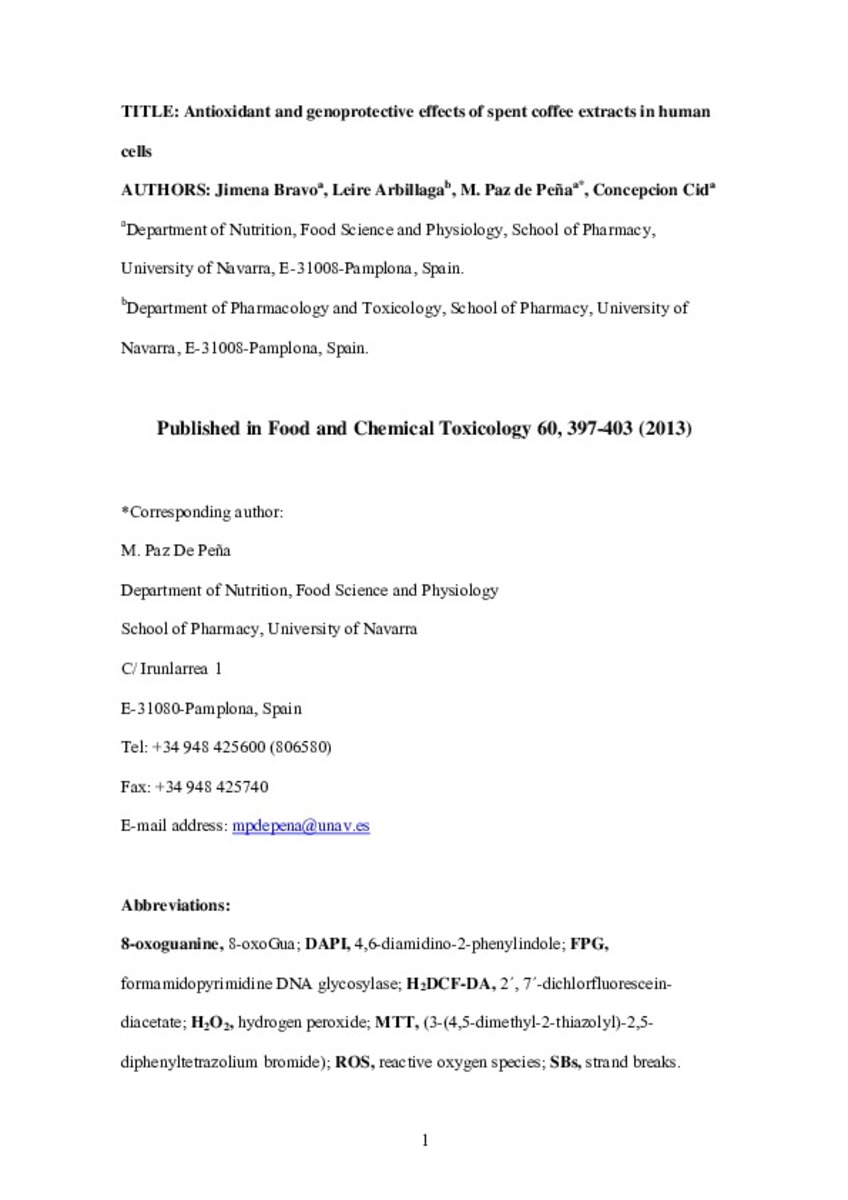Antioxidant and genoprotective effects of spent coffee extracts in human cells
Palabras clave :
Coffee
Spent coffee
Antioxidant
Antigenotoxicity
DNA damage; Comet assay
Comet assay
Fecha de publicación :
2013
Cita:
Bravo J, Arbillaga L, Paz de Pena M, Cid C. Antioxidant and genoprotective effects of spent coffee extracts in human cells. Food Chem Toxicol 2013 OCT;60:397-403
Aparece en las colecciones:
Estadísticas e impacto
0 citas en

0 citas en

Los ítems de Dadun están protegidos por copyright, con todos los derechos reservados, a menos que se indique lo contrario.







